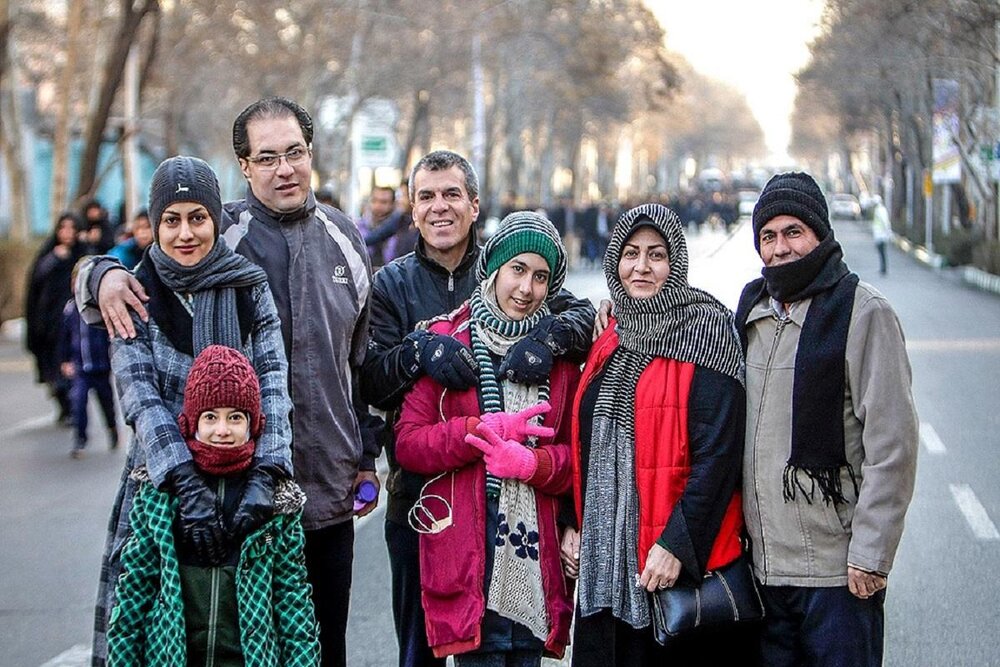National Family Day: in hope for a better future

TEHRAN – The family, as the smallest social institution, is the most vulnerable group to social harms, so that most problems first occur in families and, if not prevented and treated correctly, penetrate into society and in these difficult circumstances can no longer be easily controlled.
Iran has designated August 15 as National Family Day and honoring retirees.
Masoumeh Ebtekar, the vice president for women’s and family affairs, referring to the measures taken to improve the social and economic well-being of families, said that in 2017, the national headquarters for women and family upgraded the quality of pre-marriage, marriage, and post-marriage education.
The adoption of gender justice indicators in 2018, the compilation of 31 documents to improve the status of women and the family, which have made each province a local program to improve the situation of families, as well as the development and approval of family indicators in 2019, are among other measures taken, she explained.
In addition to these policies and plans, the government's practical measures include increasing and providing marriage loans for youth and prioritizing young couples for home mortgages, she highlighted.
Ebtekar went on to say that also, paying attention to the communication skills of family members in the framework of the national family dialogue plan, which has been modeled and implemented in 68 parts of the country so far.
Economic empowerment of women heads of households across the country has also been one of the important measures, she also added.
In the field of legislation, finalizing the bill to ensure the security of women against violence, which can play an important role in combating domestic violence, the implementation of the plan granting Iranian citizenship on children born to Iranian women and non-Iranian men, and the bill banning the marriage of girls under 13, has been among the government's efforts, she concluded.
Family planning policies
In recent years, several socioeconomic factors, including urbanization, education, financial issues, first marriage age, as well as increased access to family planning services along with increased time gap between the firstborn and marriage, have led to fertility rate decreased in the country.
Iran has achieved a demographic window of opportunity which must be seized now before its working-age population starts to shrink and get older in the 2050s.
Fourteen policies to support childbearing and the family were announced by the Leader of the Islamic Revolution Ayatollah Ali Khamenei in [the Iranian calendar year] 1389 (March 2014-March 2015) when he stressed that social, cultural and economic development should be done in accordance with these general policies to support families.
Policies like providing inexpensive houses for the youth, increasing monthly subsidies, fund provision for reducing infertility, promotion of childbearing culture through media, and granting incentives and supportive plans all remained incomplete, Kimia Mohammadzadeh, a member of the working group for women's and family at the independent association of the University of Tehran said.
“Over the past two years, the marriage rate has been declining by 8 percent annually. With this trend, we will be one of the oldest countries in the world in the next 30 years, and this is dangerous in all scientific, social, cultural and economic fields,” Seyed Hamed Barakati, deputy health minister for family and school population told IRNA.
International Day of Families and sustainable development
Families around the world are changing, many becoming smaller, as the number of single-parent households grows. Currently, 65% of all families are made up of either couple living with children of any age, or couples living with both children and extended family members, such as grandparents. The diminishing number of extended families and the increasing number of single-parent families put into sharp focus the issue of social protection.
In 1993, the General Assembly decided in a resolution (A/RES/47/237) that May 15 of every year should be observed as The International Day of Families. This day provides an opportunity to promote awareness of issues relating to families and to increase the knowledge of the social, economic, and demographic processes affecting families.
On 25 September 2015, the 193 member states of the United Nations unanimously adopted the Sustainable Development Goals, a set of 17 goals aiming to eliminate poverty, discrimination, abuse, and preventable deaths, address environmental destruction, and usher in an era of development for all people, everywhere. Families and family-oriented policies and programs are vital for the achievement of many of these goals.
This year’s 25th anniversary of the Copenhagen Declaration and Beijing Platform for Action came at a time of one of the most challenging global health and social crises. The 2020 COVID-19 pandemic brought into sharp focus on the importance of investing in social policies protecting the most vulnerable individuals and families. It is the families who bear the brunt of the crisis, sheltering their members from harm, caring for out-of-school children, and, at the same time, continuing their work responsibilities.
Worldwide, women are increasingly taking part in the formal and informal labor force, while continuing to assume a disproportionate burden of the household work in comparison with men, and work-family balance is more difficult to achieve. The imperative of ensuring gender equality in the family is, therefore, gaining more attention.
As the world struggles to respond to the COVID-19 crisis, there is a real opportunity to rethink and transform the way our economies and societies function to foster greater equality for all. In doing so, it is clear that gender equality will not be achievable without greater equality in families.
FB/MG
